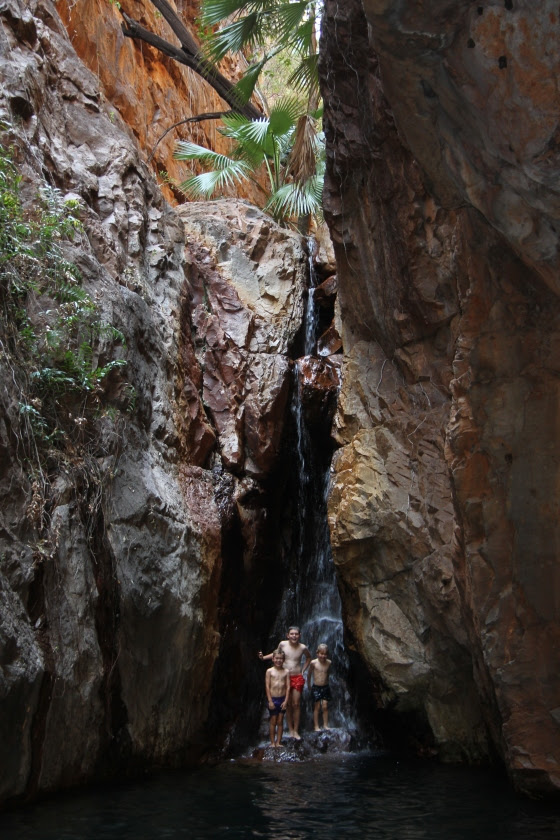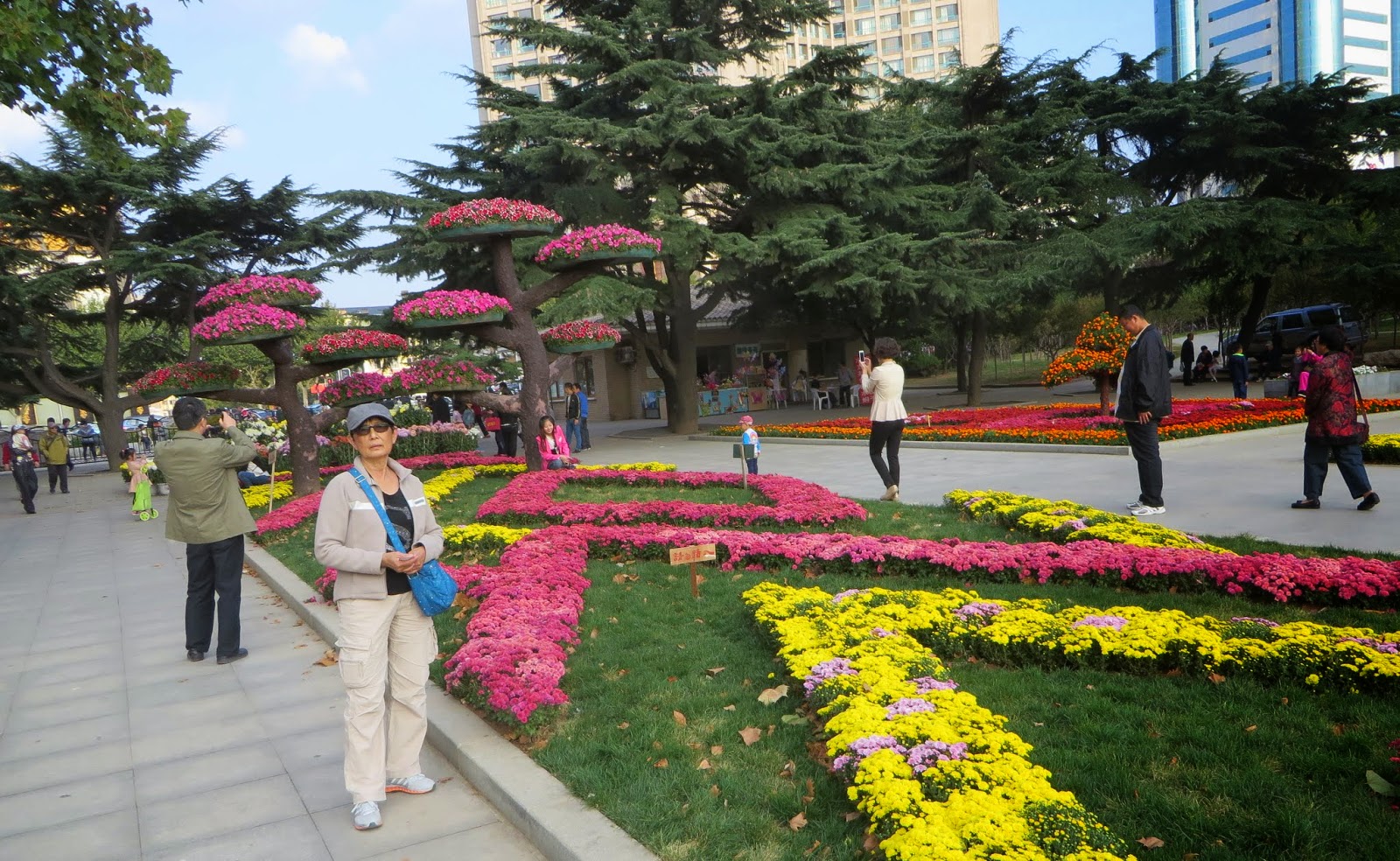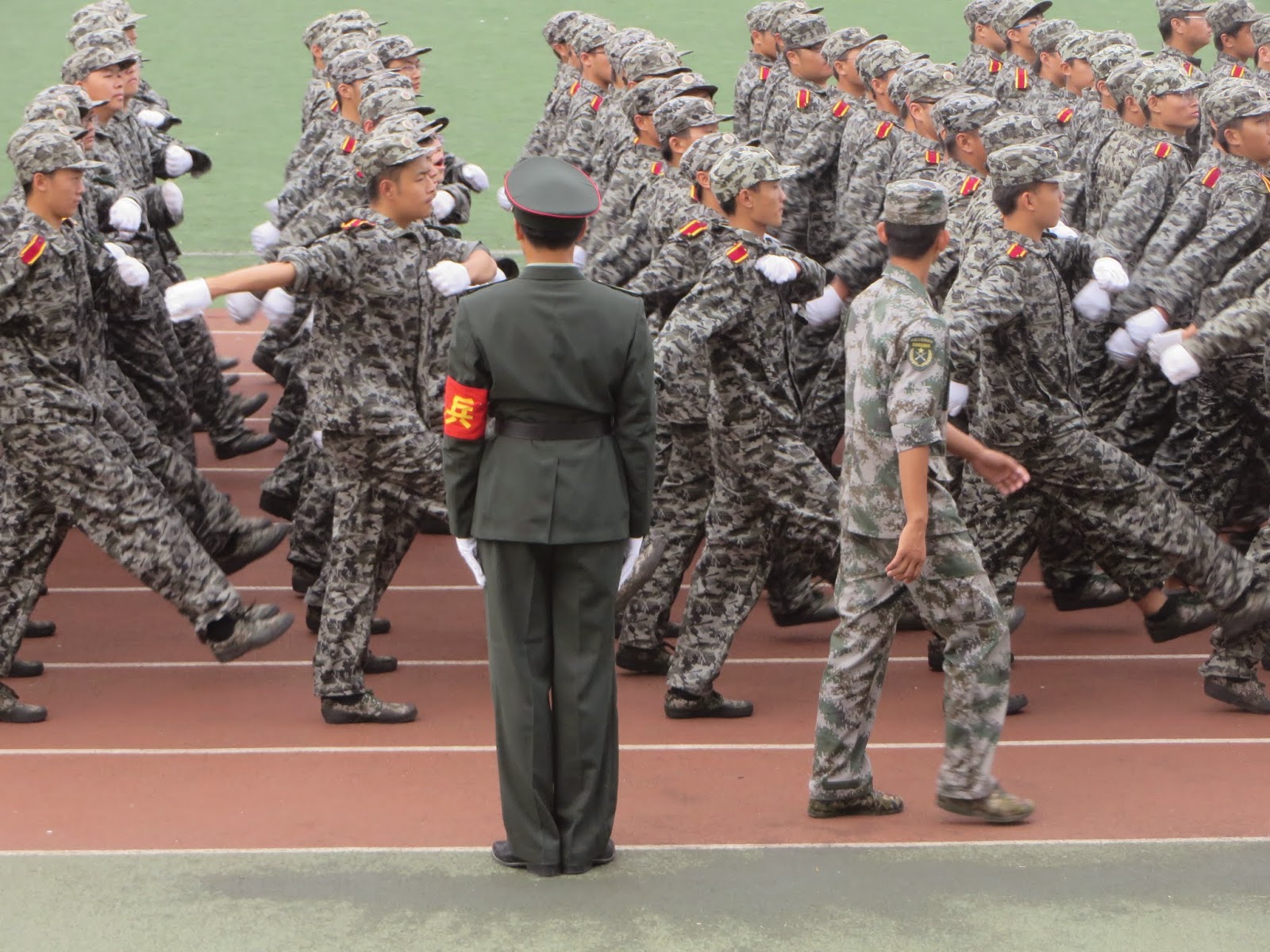This post describes our trip to Dalian, Liaoning Province, 2 - 6 October 2014, during the National Day holidays.
Chinese have two main public holidays every year: a week for Spring Festival (aka Chinese New Year) which usually occurs around early February) and a week for National Day starting on 1 October. These are known as 'golden weeks' because they are relatively long breaks. There are also shorter breaks for Labor Day (1 May), Tomb Sweeping Day, and Mid-Autumn Festival (in September).
Big State Owned Enterprises give their employees an additional 5 days a year ('emergency leave'). Foreign companies are more generous. But if you work in a service industry (like a shop or restaurant) or in construction you would be lucky to get any recreational leave at all.
I read in the China Daily that paid leave was actually mandated in 1995, but never enforced. In a survey, two-thirds of respondents admitted that they never took paid leave, even though it was in their work contracts, because they feared being seen as disloyal to the company. Last year the State Council (equivalent to our Cabinet) announced that a national paid leave scheme would be implemented by 2020.
Chinese are amazed/incredulous when they hear that all Australians get 4 weeks paid leave on top of the public holidays.
Vera and I have done relatively little travel around China. During the long summer and winter university vacations we return to Australia to see family and friends. Weekends are too short, so that leaves the public holidays. The problem is that everyone else is also travelling at that time and there are crowds everywhere. Of course there are always people around in China, but it gets even crazier during holiday time. Still, we've only got another 9 months in China so have to take our opportunities when they arise.
We decided to visit Dalian, a city in Liaoning Province. Dalian is some 700 km due north of Qingdao, about like Melbourne to Sydney. We'd heard good things about Dalian and wanted to see it for ourselves.
Another reason for wanting to visit Dalian was to see Port Arthur (Chinese name: Lushun). It is about 60 km south of Dalian, almost at the end of the Liaotong Peninsula. I'm not sure when I first heard about Port Arthur - perhaps in a history class in High School? or was it in a Graham Greene or Somerset Maugham novel? - somehow it had entered my sub-consciousness and I wanted to see it.
| This map shows the location of Port Arthur / Lushun, about 60 km south of Dalian. Our university campus is located about 30 km south-west of Qingdao City, on the other side of Jiaozhou Bay. |
But Russia had its own agenda - the Czar wanted a warm-water port in the East. No sooner was the territory back in Chinese hands, then Russia negotiated a long term lease. They called the city Dalny.
The locals must have been confused: in a matter of 3 years their place was Chinese, then Japanese, then Chinese again, and finally Russian.
When Japan defeated Russia in the 1904-5 War, it was ceded to the victor. The Japanese called it Dairen. The area remained under Japanese control until August 1945 when the Japanese surrendered to the Soviet Army which had recently entered Manchuria. In 1950 the Soviets transferred control to the new PRC, although Soviet military forces stayed on until 1955 (after the conclusion of the Korean War).
| Soviet sailors take over Port Arthur, August 1945 |
We had 4 nights (5 days) in Dalian, and were able to get a reasonable idea of the area.
In many ways Dalian is similar to our city of Qingdao. They both have populations of about 5 million; both are coastal cities; both have been rated "most livable city in China" in recent years; and both have historical links to foreign powers (Qingdao to Germany; Dalian to Russia and Japan).
Construction in both cities is booming. One gets the feeling that other places can't be as busy as here in Qingdao - but we were astounded at the amount of building in Dalian (and this must be going on everywhere in China). I am baffled by the property market in China. Who is buying and occupying all these commercial and residential properties? Some commentators are warning of excess supply, yet developers are pushing ahead as if there were no tomorrow.
An interesting bit of trivia about Dalian is that Harry Triguboff was born there on 3 March 1933. Nicknamed "High Rise Harry" because of his fortune in real estate, in 2014 Forbes ranked him the 6th richest Australian (net worth $6 billion).
Like many 'White Russians' the Triguboffs fled after the Communist Revolution and ended up in China. In 1947 young Harry was sent to Scots College in Sydney. Subsequently he attended university in the UK, and worked in Israel and South Africa and came back to Australia in 1960. He tried his hand at various businesses before building a block of apartments in Meriton Street, Gladesville in 1968 ... and the rest is history.
Here are some photos of our time in Dalian.
 |
| We used the excellent public bus system. We were delighted that the bus routes were shown in pinyin (Western alphabet) as well as in Chinese - made it much easier for us to follow. |
 |
| The ornate old metal lamp posts around Zhongshan Square feature clocks. |
 |
| We walked past the Swish Hotel. Any similarity to Swiss Hotels is purely coincidental, I'm sure. |
 |
| "Food Street" was full of a lively crowd at night. Lots of delicious seafood on offer. |
 |
| Another view of Xinghai Beach. Vera is looking at the bungee jumping platform & flying fox. In the distance is a huge new bridge under construction. |
 |
| Big crowds everywhere at Xinghai Beach, visiting the beach, fun fair, and aquariums. |
 |
| It was about a 3 km walk from the end of the beach along the waterfront to Xinghai Square. Marinas with expensive boats. Some very nice villas and luxury apartment blocks; obviously expensive real estate right on the water. |
 |
| The extraordinary "Castle Hotel" built on a hill overlooking the ocean on one side and Xinghai Square on the other. Xinghai Square is reputed to be the largest public square in the world (1.1 million sq m). We walked from one end to the other, and can attest to its enormous size! |
 |
| The impressive Grand Hyatt opened 3 weeks ago on the waterfront at Xinghai Square (standard rooms $200 a night). Vera couldn't decide which car she preferred: the Ferrari or the Maeserati parked in front of the Grand Hyatt. The Sheraton, not far away, will no doubt feel the new competition. |
 | ||
We visited "Russian Street" which is near Dalian Railway Station. It is about 500m long, and lined with shops and stalls selling Russian chocolate, cigarettes and lighters, fur hats, etc. Some old Russian buildings. The old mansion (above) housed an art gallery - excellent exhibition of photographs.
|
 |
| A group of friends taking photos on Russian Street. Domestic tourism is flourishing; we saw many groups of young women like this one. |
 |
| A wedding party in the ornate function room of the "1896 Railway Hotel" near Russian St. It is a boutique hotel, very well presented. |
 |
| The bride and groom (standing behind) taking photo with relatives. |
Port Arthur
We spent one day visiting Lushun (Port Arthur), about 60 km south of Dalian. The bus took a bit over an hour and cost $1.20 each.
In 1860, during the 2nd Opium War, the frigate HMS Algerine commanded by Lieutenant William Arthur surveyed a harbour at the end of the Liaotong Peninsula. William Arthur had joined the Royal Navy at the age of 15. He was promoted to Lieutenant at the age of 24, Commander at 31, and Captain at 37. In 1885, aged 55, he retired with the rank of Rear Admiral.
The harbour subsequently became known as Port Arthur. It was a British naval base for 20 years; later the Russians took over; then the Japanese; the Soviets and finally the PRC.
On the bus we got talking to two young women, Ma Jing and Huang Yin, who were visiting Dalian from Zhengzhou in Henan Province, and we decided to team up to see Lushun. When we arrived in Lushun a local taxi driver persuaded us that he knew the city well, and so we agreed to hire him for 4 hours ($26).
That turned out to be a big mistake, as he basically took us to tourist spots most of which involved relatively expensive entry charges. Too late, we surmised that he probably got kick-backs. But, on reflection, he was probably doing what was 'normal' - the vast majority of Chinese visitors would take a theme park over a historical site any day. First he took us to a beach park, which he assured us had the best entertainment in the district. The entry charge was $8 each, but there wasn't much to see or do. They advertised an "Alligator Show" which we attended.
The show comprised 3 acts: firstly a skit performed by dwarfs lampooning the Japanese invasion of the area (a Chinese derogatory term for Japanese is 'dwarfs', which of course was not lost on the audience); the second act was a mime-singing show by two lady-boys (yes, really!); and the third act involved a couple of small alligators.
The whole performance was so bizarre that it was actually quite amusing.
From there he took us to inspect the infamous Japanese prison where many Chinese had been incarcerated, tortured and killed during the long years of Japanese rule.
Here are some photos of our day in Lushun (Port Arthur).
 |
| The beach entertainment area we were taken to by our taxi-guide. We climbed the 'great wall'; there was also horse riding on offer, and a go-cart track. |
 |
| With our new friends Ma Jing and Huang Yin, at the 'Great Wall'. Ma Jing graduated in Auditing last June (Kaifang university), and is now working at the Agricultural Bank of China in her home town of Zhengzhou, capital of Henan Province. Huang Yin is Ma's sister-in-law; she is a public servant in Zhengzhou. |
 |
| The beach featured various figures of sea creatures, like these giant crabs. |
 |
| The Alligator Show started with a skit about the Japanese occupation, performed by three dwarfs. |
 |
| One of the lady-boy performers. This one spoke with a Thai accent. They mimed a couple of songs and then posed for photos with people in the crowd (cost per photo $1.60). |
 |
| The other lady-boy performer. It was bizarre seeing such a show in a remote corner of China. |
 |
| A corridor in the infamous Japanese prison in Port Arthur. |
 |
| The prison's "Hanging Room". Bodies were buried in boxes in crouching position - see skeleton. |
OK folks, that's it for this post.
Stay well, and keep smiling.
Alex & Vera Olah
English teachers at the China University of Petroleum, Qingdao
www.upc.edu.cn
Tuesday, 7 October 2014
The Roberts family is now in Broome, Western Australia. Their adventure has gone well so far, except when Tom fell 2 metres onto his back. He was badly bruised and shaken, but has recovered now. To check their blog, click HERE
 |
| Sid, Kurt & Nate at El Questro Gorge on the Gibb River Road, far north of Western Australia |
And little Eddie continues on his jet-setting ways. Last weekend Andrew & Caroline and Eddie celebrated the Idul Adha public holiday in Lombok. They will transfer from Kuala Lumpur to Hong Kong later this month.
 |
| Eddie in Lombok, 5 October 2014. Almost 7 months, growing and changing fast. |
















































